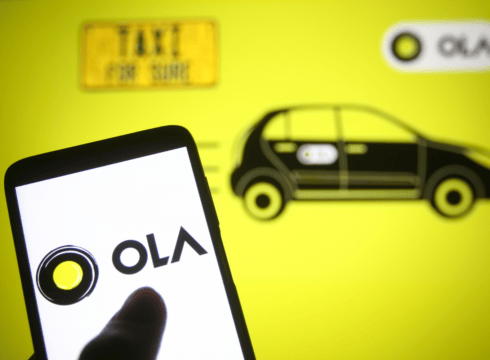Ola argued that the concerned driver has already been “blacklisted” by the company, adding that it cannot be held responsible for the driver’s actions
After hearing the arguments from both sides, the HC reserved the order in the matter
The HC was hearing a petition filed by a woman in 2019 who alleged that Ola failed to take appropriate action after she was harassed by an Ola driver in 2018
Inc42 Daily Brief
Stay Ahead With Daily News & Analysis on India’s Tech & Startup Economy
Mobility major Ola’s parent ANI Technologies has reportedly urged the Karnataka High Court (HC) to dismiss a plea that sought action against one of its drivers under the Sexual Harassment of Women at Workplace (Prevention, Prohibition and Redressal) (POSH) Act.
Arguing before a single-judge bench of Justice MGS Kamal, the cab aggregator’s counsel, Dhyan Chinnappa, reportedly contended that the company cannot proceed under the Act in “such scenario” as drivers are employees of the company.
The HC was hearing a petition filed by a woman in 2019 who alleged that she was harassed by an Ola driver a year before. She also claimed that the ride-hailing platform failed to take appropriate action in response to her complaint.
As per Bar and Bench, Chinnappa argued that the concerned driver has already been “blacklisted” by Ola and “deserved to be brought to book, adding that the company cannot be held responsible for the driver’s actions.
“Based on the terms of contract (with the driver), it is not Ola’s cab. The lease-holder has a right over it. I am an intermediary. If I train the drivers, or place some terms and conditions, that does not take away the fact that I am merely an intermediary. The driver is independent,” Ola’s counsel reportedly said.
While contending that the petition for prosecution under the POSH Act was not maintainable in this instance, the lawyer said that existing labour legislations are not applicable when the drivers are “independent”.
“In terms of the relief sought, action has already been taken against the driver. Beyond this, to introduce a definition of a driver as an employee will be an extreme stretch, and therefore, the petition should be dismissed,” Chinnappa added.
In response, the lawyer for the petitioner slammed the contention that the cab aggregator was not accountable for a driver’s actions.
“Take the example of a woman like me. The trust we entrust on a large entity like Ola…I chose to book an Ola cab instead of hailing a random cab on the road because I felt Ola would be safer. Now, if Ola tells me it is not responsible for my safety, what am I supposed to do? Had I known this, I would never have entered that cab in August 2018,” the petitioner’s lawyer told HC.
Retorting back, Chinnappa claimed that a customer, even someone who consciously chooses to take an Ola cab, “cannot assume that Ola owns the cab and owns the driver”. He also claimed that the mobility company too was merely an intermediary like “Amazon or Flipkart”.
However, Justice Kamal pulled up the company, saying that a cab aggregator cannot compare itself to an online marketplace.
“Intermediary simplicitor doesn’t apply in this case. Amazon acts as a marketplace. In case of consumerism, there is hardly any scope for these kinds of allegations to come…physical/sexual harassment. Someone wants to buy coriander, doesn’t have any contact with the intermediary physically,” observed Justice Kamal.
The HC also reprimanded the state government over the failure to take adequate action on the complaint filed by the woman at the Cubbon Park Police Station in Bengaluru.
After hearing the arguments from both sides, the HC reserved the order in the matter.
In her plea, the woman alleged that the cab driver watched a pornographic video on his mobile phone in a manner that was “visible” to her. She also alleged that the driver was masturbating and refused to stop the cab before the destination.
Following the incident, the victim filed an initial complaint against the driver with Ola Cabs. Afterwards, the ride-hailing company reportedly told her that the driver had been blacklisted and would be sent for counselling.
As per the report, the company, however, did not take any further action, which prompted the petitioner to lodge a formal police complaint. Later on, Ola’s internal complaints committee (ICC) ruled that drivers were not employees of the company and were not “amenable to actions under provisions” of the POSH Act.
Following this, she approached the Karnataka HC and made the union government, state authorities, ANI Technologies, and ICC of Ola as parties to her petition and sought action against the driver under provisions of the Act.
{{#name}}{{name}}{{/name}}{{^name}}-{{/name}}
{{#description}}{{description}}...{{/description}}{{^description}}-{{/description}}
Note: We at Inc42 take our ethics very seriously. More information about it can be found here.


